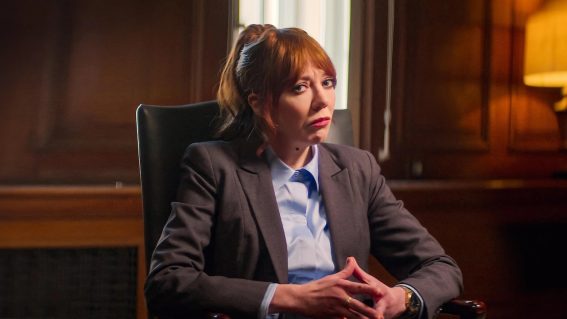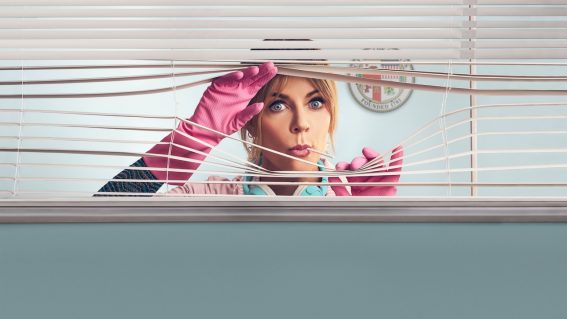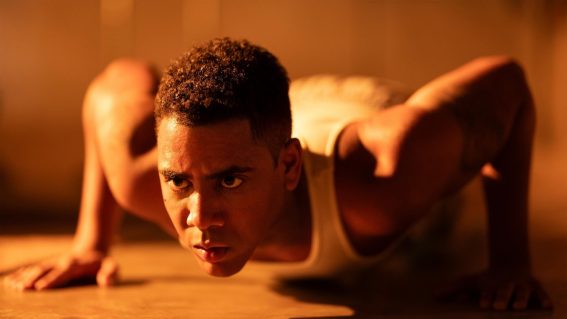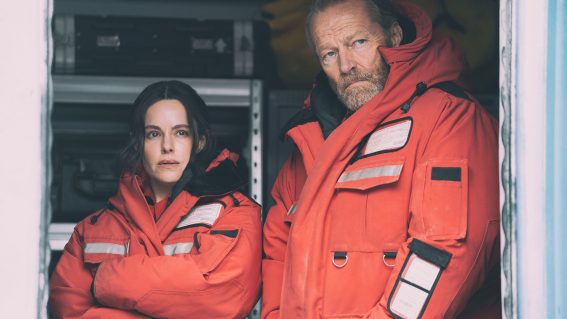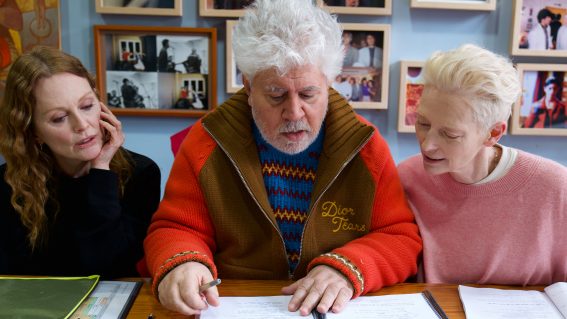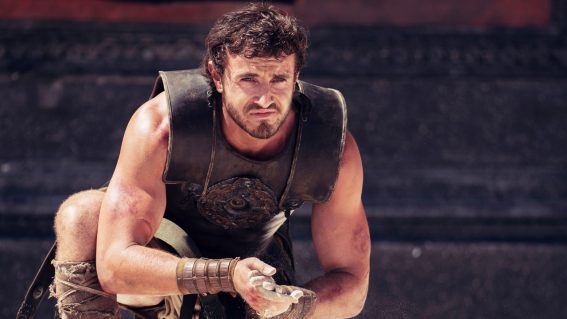Douglas is Cancelled navigates a minefield of modern sensitivities
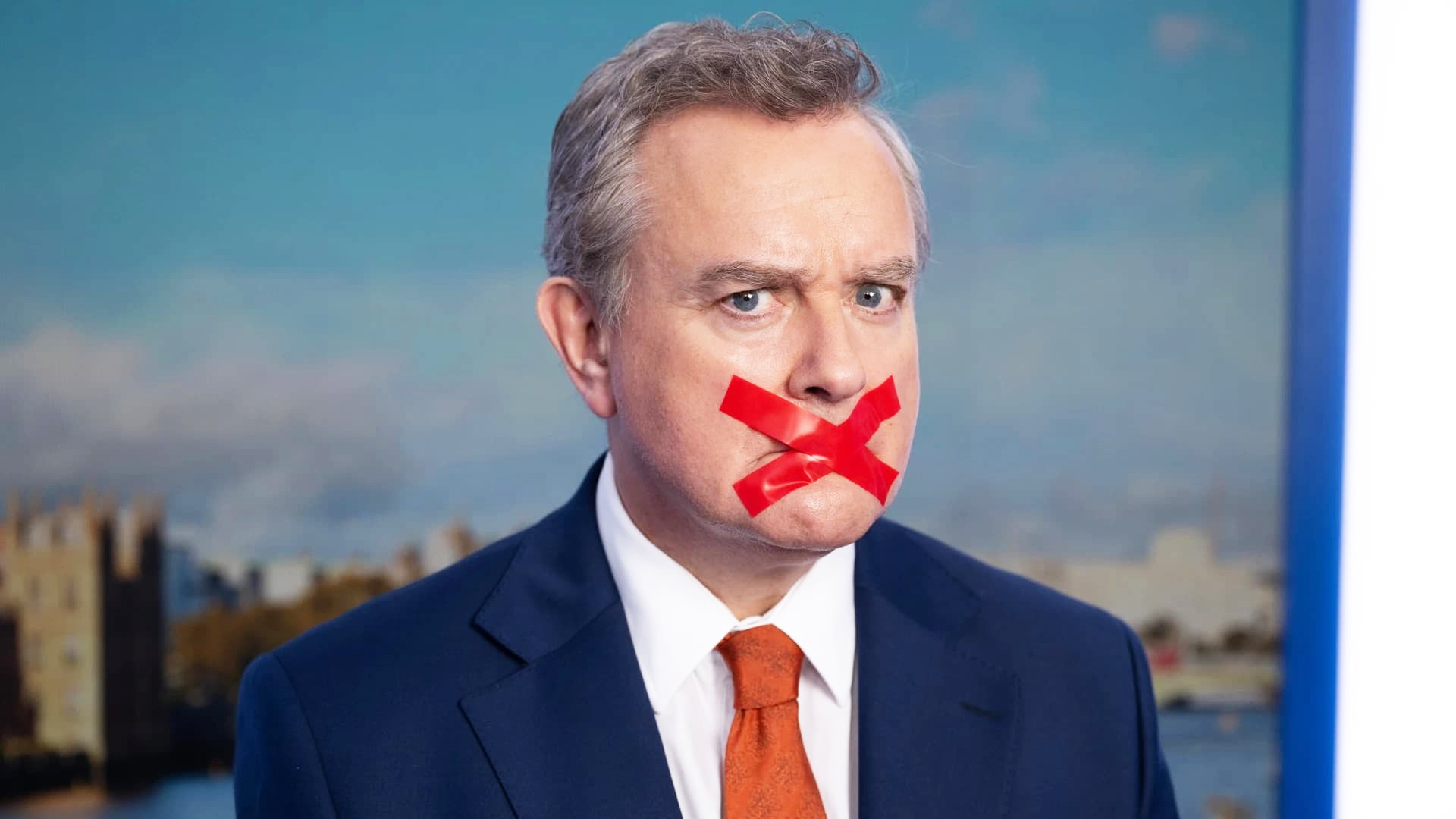
Douglas is Cancelled, a brutally funny series created by Doctor Who‘s Steven Moffat, dives into political correctness and other comedy no-fly zones. But the woke-hating brigade might not like where it goes, writes Luke Buckmaster.
This lacerating series about a newsreader navigating a potentially career-ending controversy combines sharp, dry, gloriously British tête-à-têtes with a rumbling undercurrent of sinisterness. Created and written by Steven Moffat, and directed by Ben Palmer, Douglas is Cancelled is laugh-out-loud funny, but never in ways that reduce the seriousness of the core drama: as you giggle you can feel the space closing in, the air intensifying. We don’t witness the MacGuffin that sends the life of Douglas Bellowes (Hugh Bonneville) into overdrive but we hear about it from the very first scene, ascertaining that he made a sexist joke at a family wedding he recently attended.
Douglas doesn’t deny making the joke, but appears to genuinely not remember what he said, on account of him being six sheets to the wind at the time. The person in attendance at the wedding who tweeted about it—triggering the incoming avalanche—doesn’t go into specifics either, preventing any reasonable assessment of the event. The show opens with sparky to-and-fro, Douglas’ producer Toby (Ben Miles) sounding like a spin doctor from an Armando Iannucci comedy as he drills his colleague for information. But not necessarily truthful information; the matter of truth isn’t top priority. Here’s a taste of their conversation.
Toby: Let’s start with an account of what happened.
Douglas: An honest account?
Toby: No, an account. We can move in the direction of honesty once we’ve decided on the facts.
Douglas: In the direction of honesty?
Toby: I’m not ruling out honesty at this stage.
Even a relatively simple exchange like that requires careful balancing: the joke is Toby’s absurd response to what’s happened, not the event itself, or the question of guilt or innocence. But we ain’t seen nothin’ yet. Moffat and Palmer prance through a minefield of loaded spaces and comedy no-fly zones, making us feel unsettled and giving the show a dangerous energy, then bringing us back from the edge, reassuring us that we’re in good hands.
Part of the trick is to never give the protagonist a passcard for his actions, or potential actions, nor to turn a blind eye to the existence of mob mentality and society media witch hunts. In scenarios like Douglas’, it’s hard to know to what extent the controversy is “real” or whether reacting to it would be like jumping at shadows. He initially insists that “it’s nothing, it will burn itself out,” but things intensify when Douglas’ co-presenter Madeline (a dynamic, carefully shaded performance from Karen Gillan) retweets a defense of him, which of course spreads the story further and gives it a second life.
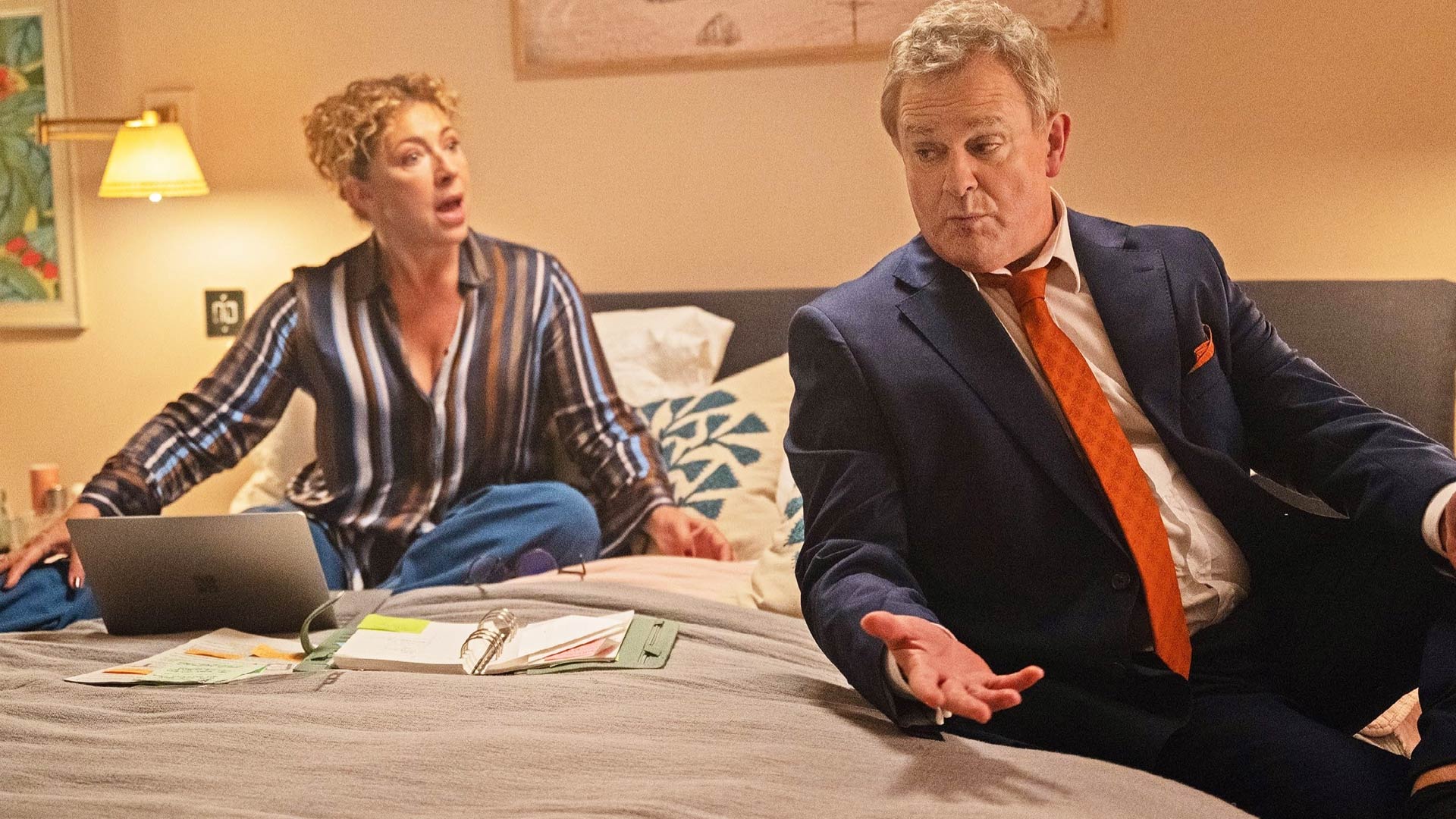
Another trick is to be very specific in some ways and very vague in others. “Cancel culture,” after all, is a shame-shifting and slippery term. So slippery I’m loath to call it a “phenomenon”: it sort of exists and it sort of doesn’t, and it’s sort of new and sort of not. It’s an incontrovertible fact that countless people throughout (pre-internet) history lost their livelihoods due to personal controversies—particularly those with careers in the public spotlight. It’s also true that the mood has shifted and electrified in recent years; perhaps the result of a general, internet-era increase in public awareness making skins thinner than ever.
There are times, in Douglas is Cancelled, when you can feel the presence of a white, male, middle-aged writer trying to make sense of a woke modern world, and not liking what he sees. One of many dialogue exchanges that incorporate generational differences occurs in episode two when Douglas is engaged in a prickly conversation with his daughter Claudia (Madeleine Power), which peaks after she comments that “gay people are executed everywhere.” Douglas interprets this as a literal statement and rebuffs it, asking “would you like a list of countries where homosexuality is punishable by death?” When she says no, and he asks why not, Claudia responds “because it’s racist.”
A line like that, and the absurd political correctness that led her there, will solicit grateful nods and bemusement from audiences who remember a time when nobody ever talked like that. But those from the woke-hating brigade hoping for modern sensitivities to be fed to the wolves will be dismayed by where the series ultimately heads, when (no spoilers) it transitions from a comedy with dark undertones to being a stone-cold thriller. It’s only occasionally that the mixture of comedy and red hot, socially conscientious drama feels ill-fitting; mostly, the combination comes together oddly well. The show is brutally loquacious, and very moreish; I smashed through all four episodes in a single sitting.






